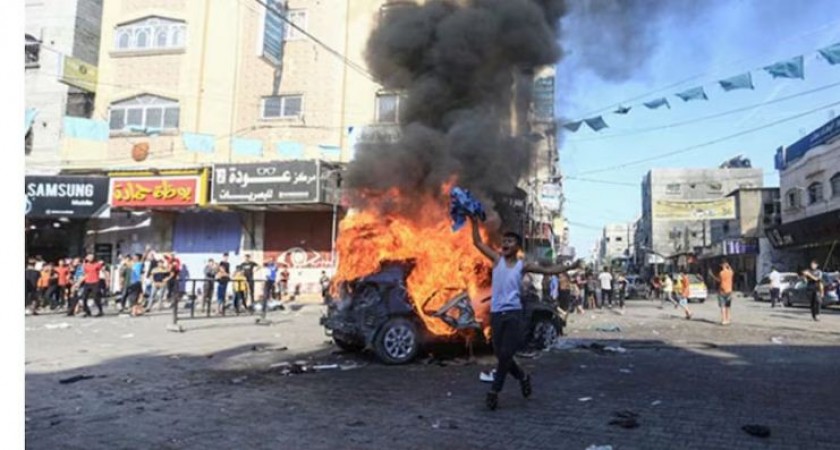
Jerusalem: In a tense early Sunday confrontation, Israel launched a series of airstrikes across southern Lebanon, claiming it was a preemptive move to prevent a significant attack from Hezbollah. In response, Hezbollah fired hundreds of rockets and deployed drones, asserting it was retaliating for the death of one of its top commanders last month.
The heavy exchange of fire, though intense, did not escalate into a broader conflict, though tensions in the region remain high. Meanwhile, Egypt is hosting high-level talks focused on brokering a cease-fire in the ongoing Israel-Hamas conflict in Gaza, a move diplomats hope will help ease regional tensions.
The Israeli military justified its strikes, stating that Hezbollah had been planning a substantial barrage of rockets and missiles. Hezbollah, in turn, reported targeting Israeli military positions in retaliation for the killing of Fouad Shukur in an Israeli airstrike in Beirut last month.
By mid-morning, both sides appeared to have ceased hostilities, with reports indicating that the attacks were focused on military targets. At least three fighters were reported dead in Lebanon, while Israel reported no casualties.
Israeli Prime Minister Benjamin Netanyahu affirmed that the military had destroyed “thousands of rockets that were aimed at northern Israel” and vowed to protect the nation.
Air Raid Sirens and Flight Diversions
Throughout northern Israel, air raid sirens were triggered, and Ben-Gurion International Airport briefly closed, with flights diverted due to the perceived threat. Israel’s Home Front Command raised alert levels across the region before easing restrictions in most areas later.
Lt. Col. Nadav Shoshani, an Israeli military spokesperson, stated that Hezbollah intended to strike targets in northern and central Israel. Despite the heavy exchange, Israel reported minimal damage but remains on high alert.
Hezbollah's attack involved over 320 Katyusha rockets aimed at various sites in Israel, alongside numerous drones. The group claimed the operation targeted critical Israeli military infrastructure, though specifics were not provided. Later, Hezbollah declared the day’s military operations concluded, downplaying Israel’s claims of thwarting a larger attack.
Hezbollah’s leader, Hassan Nasrallah, is expected to address the situation in a speech later.
Lebanon’s caretaker Economy Minister, Amin Salam, expressed cautious optimism following an emergency government meeting, suggesting that both sides seemed to be stepping back from further escalation. Ongoing negotiations in Cairo were cited as a positive influence on the situation.
U.S. President Joe Biden is closely monitoring developments, according to the National Security Council.
Israel Launches Preemptive Strike Against Hezbollah Targets in Lebanon Amid Escalating Tensions
Hamas Delegation Heads to Cairo, Opts Out of Gaza Ceasefire Talks
What Kamala Harris Promises for America's Defense and Foreign Relations if Elected